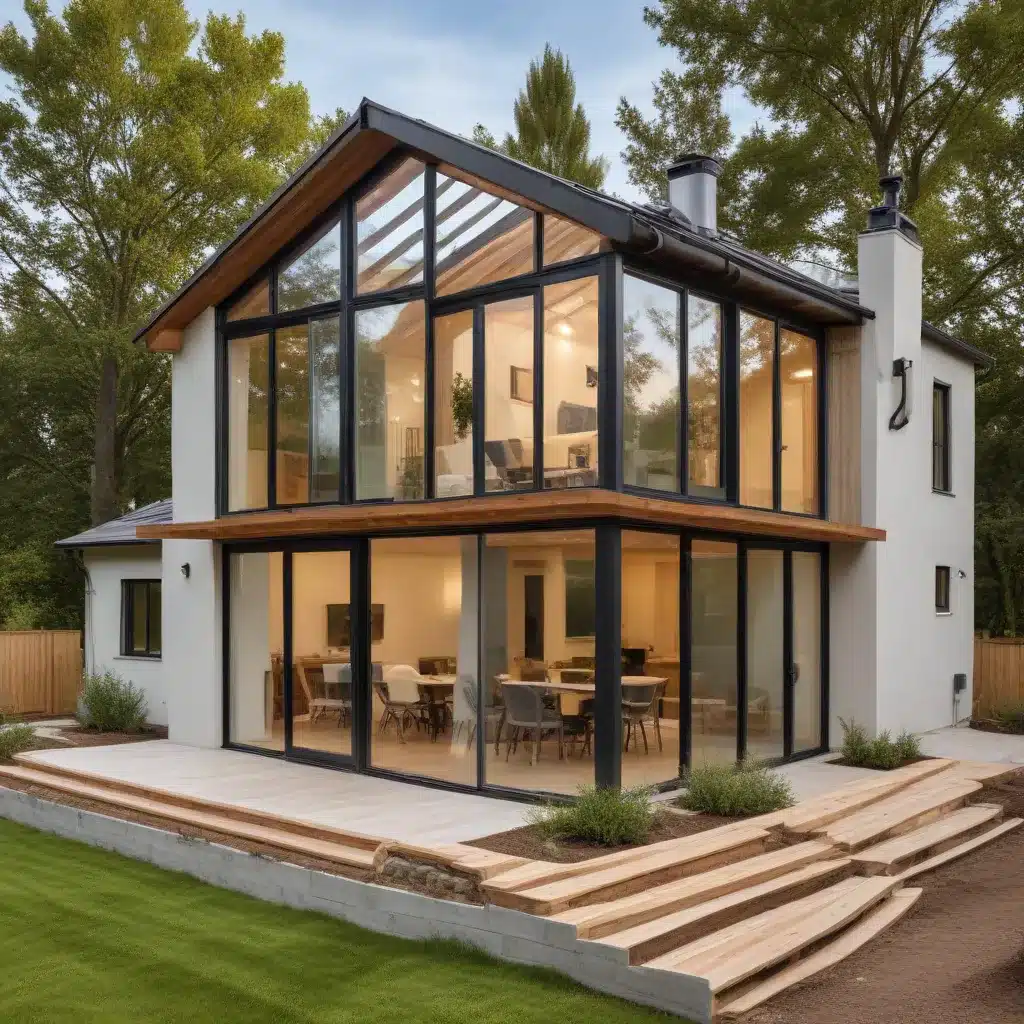
Sustainable Home Extensions: Exploring Sustainable Financing Options
In the face of the climate crisis, homeowners are increasingly recognizing the importance of making eco-friendly choices when it comes to home improvements. One of the most significant decisions in this regard is how to finance a home extension project in a sustainable manner. As an experienced home extension consultant, I’m here to guide you through the various sustainable financing options available, helping you make informed choices that align with your environmental and financial goals.
Sustainable Financing Options
When it comes to financing a home extension, the traditional approach of securing a mortgage loan or a home equity loan may not always be the most sustainable option. Fortunately, there are several innovative sustainable financing solutions that homeowners can explore.
Conventional Mortgage Loans
Conventional mortgage loans can be a viable option for financing a home extension, but it’s important to consider the environmental impact of the project. Look for lenders that offer “green” mortgage products, which often come with lower interest rates or additional incentives for incorporating energy-efficient features into the design. These mortgages may also have specific requirements regarding the use of sustainable materials and construction methods.
Home Equity Loans and Lines of Credit
Home equity loans and lines of credit are another popular financing option for home extensions. While these options can provide the necessary funds, it’s crucial to weigh the long-term implications. Consider exploring “green” home equity products that offer preferential terms for sustainable home improvements, such as lower interest rates or extended repayment periods.
Green Financing Programs
In recent years, there has been a growing number of green financing programs specifically designed to support sustainable home renovations and extensions. These programs, often offered by government agencies or non-profit organizations, may provide low-interest loans, grants, or tax credits to homeowners who incorporate energy-efficient and environmentally-friendly features into their projects. Research your local and national options to see if you qualify for any of these innovative financing solutions.
Eco-Friendly Design Considerations
When planning your home extension, it’s essential to prioritize eco-friendly design elements that not only enhance the sustainability of your project but also contribute to long-term cost savings and environmental impact reduction.
Energy-Efficient Features
Incorporating energy-efficient features, such as high-performance insulation, triple-glazed windows, and LED lighting, can significantly reduce your home’s energy consumption and lower your utility bills. These investments not only benefit the environment but also provide ongoing financial savings that can help offset the initial costs of the extension.
Renewable Energy Integration
Integrating renewable energy sources, such as solar panels or geothermal systems, into your home extension can further enhance its sustainability. Not only do these systems reduce your reliance on fossil fuels, but they can also generate renewable energy, potentially allowing you to become self-sufficient or even sell excess power back to the grid.
Sustainable Materials
Choosing sustainable building materials, such as reclaimed or recycled wood, bamboo, or low-emission insulation, can significantly reduce the carbon footprint of your home extension. These materials not only have a lower environmental impact but also often boast impressive durability and longevity, making them a wise long-term investment.
Environmental Impact Mitigation
Sustainable home extensions go beyond just energy efficiency and renewable energy integration; they also incorporate strategies to mitigate the overall environmental impact of the project.
Waste Reduction Strategies
Implementing waste reduction strategies during the construction phase, such as recycling or repurposing building materials, can significantly reduce the amount of waste sent to landfills. Additionally, considering the end-of-life disposal of the materials used in your extension can help ensure a more holistic approach to sustainability.
Water Conservation Measures
Incorporating water-efficient fixtures, rainwater harvesting systems, and drought-tolerant landscaping can help conserve precious water resources. These measures not only benefit the environment but also contribute to long-term cost savings on your utility bills.
Emission Reduction Initiatives
Exploring ways to reduce the carbon emissions associated with your home extension, such as using low-emission construction equipment or prioritizing local and sustainable material sourcing, can further enhance the project’s environmental credentials. These efforts can help you make a meaningful contribution to the fight against climate change.
Incentives and Rebates
To make sustainable home extensions more accessible, there are various incentives and rebates available to homeowners. Exploring these opportunities can help offset the initial costs and make your project more financially viable.
Government Incentives
Many governments offer tax credits, grants, or low-interest loan programs to encourage homeowners to invest in eco-friendly home improvements. Research the available incentives in your local and national jurisdictions to see if your home extension project qualifies.
Utility Company Rebates
Utility companies often provide rebates or discounts to homeowners who implement energy-efficient or renewable energy systems in their homes. Contact your local utility providers to inquire about any incentives that could apply to your home extension project.
Community-Based Programs
In some areas, community-based organizations or non-profit groups may offer additional financial support or guidance for sustainable home renovations. Explore these local resources to see if they can assist with your home extension project.
By carefully considering sustainable financing options, eco-friendly design elements, and available incentives, you can transform your home extension into a true testament to environmental stewardship. Remember, every step you take towards a more sustainable home not only benefits the planet but also contributes to your long-term financial well-being. If you’re ready to embark on your sustainable home extension journey, don’t hesitate to reach out to our team at ABC Home for personalized guidance and support.
















